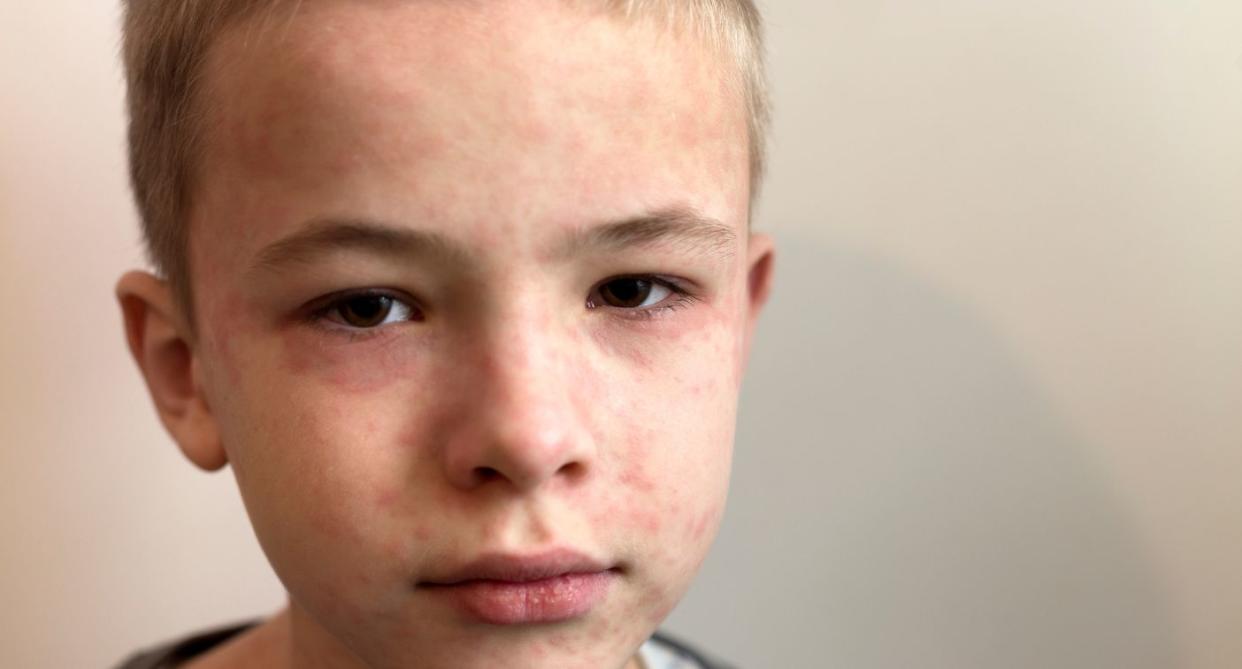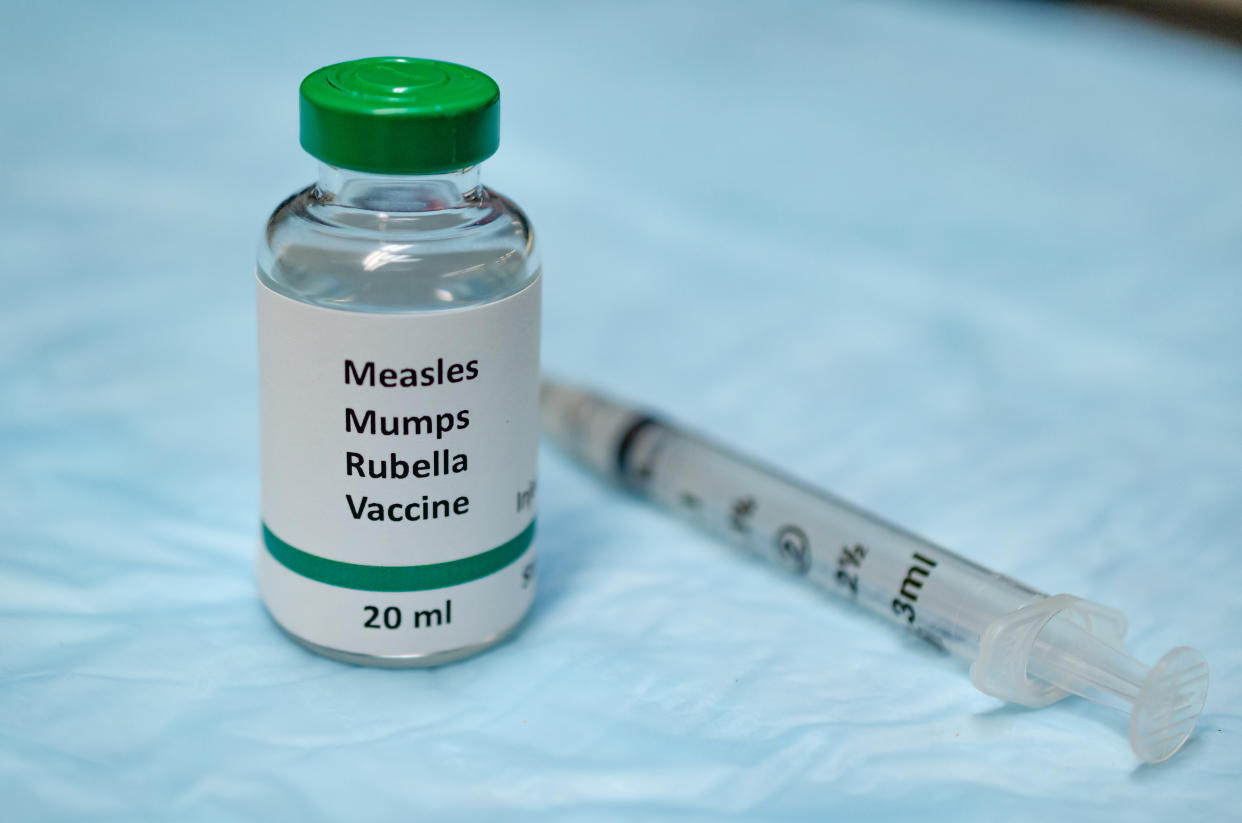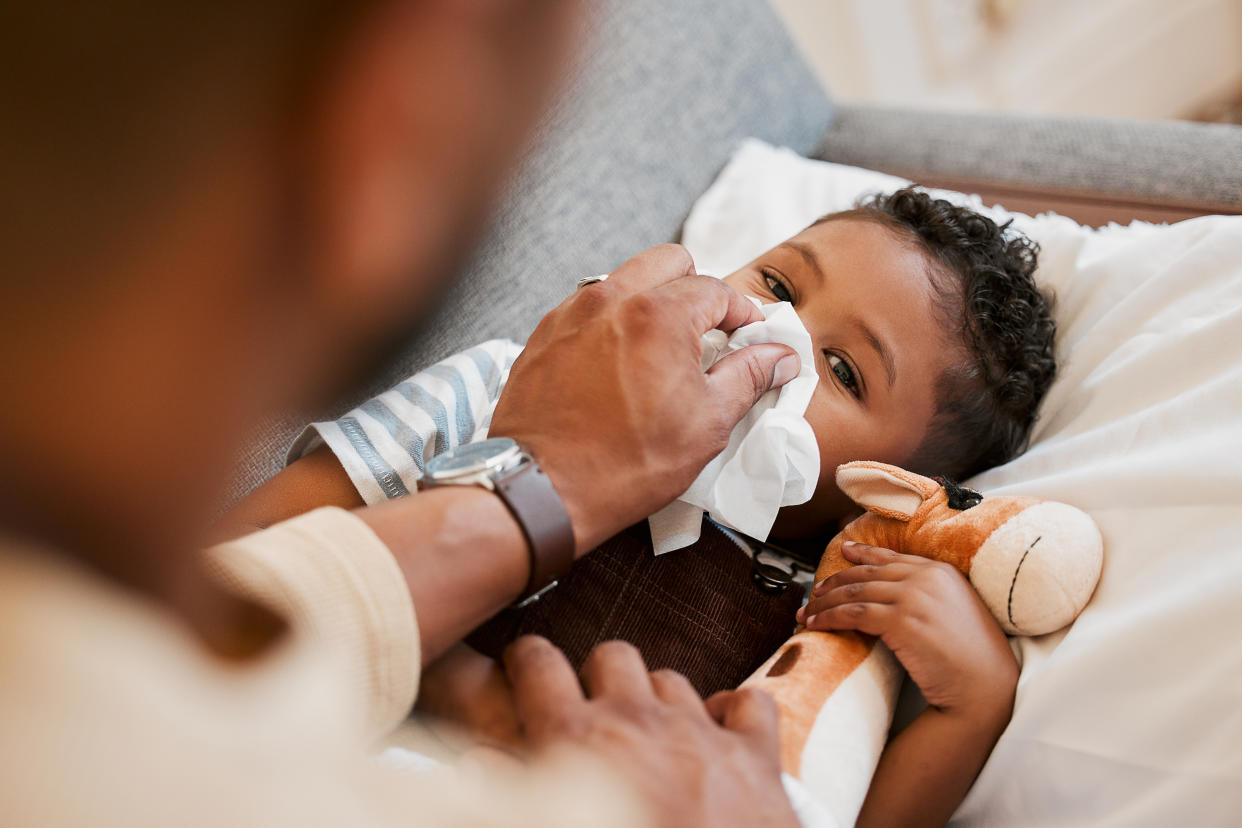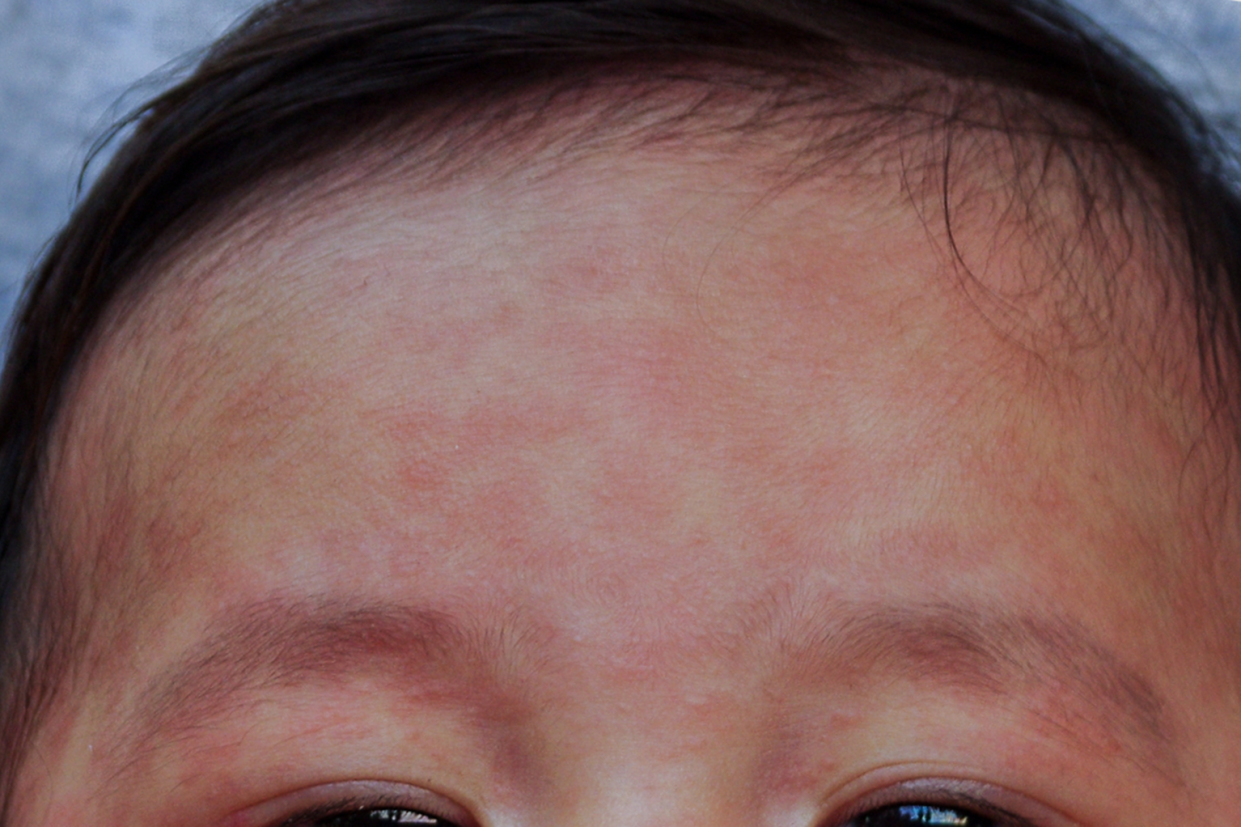Measles signs and symptoms to look out for as UK cases rise

While you may have thought measles was a thing of the past, cases across the UK have been rising.
On Friday, it was reported Birmingham Children's Hospital had experienced its highest number of cases in years, treating more than 50 children in the past month.
UK Health Security Agency (UKHSA) figures released the same day revealed the West Midlands had at least 167 laboratory confirmed cases and a further 88 likely cases, far exceeding the regional peak seen in 2012.
A low rate of uptake for the measles, mumps and rubella (MMR) vaccination in the region has been associated with the rise in cases.
Meanwhile, there were 1,603 suspected cases of measles in England and Wales in 2023, up from 753 in 2022, and just 360 the year before, according to the latest UKHSA figures. Almost half of the current surge is in the West Midlands and London.
"We are currently seeing the number of cases of measles and mumps increasing in all parts of the country. Measles in particular can be a very serious disease for some children and tragically it can even cause fatalities," the UKHSA warned earlier this month, urging parents to be able to spot the signs of the infection.
"With a measles outbreak having been declared in the UK, health experts are advising parents to be vigilant and understand the symptoms to look out for in their children and themselves, to spot the infection early and prevent any further spreading," says Navin Khosla, pharmacist at NowPatient.
So, here's everything you need to know.

What is measles?
Measles is an infection that spreads very easily and can cause serious problems in some people. Having the MMR vaccine is the best way to prevent it, according to the NHS.
Unfortunately, the number of children vaccinated (who can be particularly affected) has fallen in recent years. Uptake for the first dose in children aged two years in England is 89% and uptake of two doses in children aged five is 85%, falling below the 95% target to achieve and maintain elimination, set by the World Health Organisation (WHO).
Who is at risk?
"Unvaccinated children are most at risk of contracting the infection, as well as being the most vulnerable to the most extreme complications associated with the virus. Unvaccinated pregnant women and any unvaccinated or non-immune adults are also at risk of becoming infected," says Khosla.
If it spreads to other parts of the body, such as the lungs or brain, it can cause pneumonia, meningitis, blindness, and seizures. While these problems are rare, babies and people with weakened immune systems are more at risk.
Most of the cases reported in England in 2023 were under 10 and 24% were in teenagers and young people aged 15-34, according to new NHS figures.
Measles signs and symptoms

"Symptoms of the virus don’t always appear until 10-12 days after exposure to the infection, therefore increasing the likelihood of individuals returning home from holiday or contact and spreading the virus further afield," says Khosla.
According to the NHS, the first signs of measles to look out for include these cold-like symptoms:
a high temperature
a runny or blocked nose
sneezing
a cough
red, sore, watery eyes
This is followed by white spots in the mouth a few days later, and by a rash on the face and body a few days after that, according to the UKHSA.
It's very unlikely to be measles if you've had both doses of the MMR vaccine or had the infection before.

How to avoid/spreading catching measles
Measles is spread when an infected person coughs or sneezes.
To reduce your risk of spreading or catching it:
wash your hands often with soap and warm water
use tissues when you cough or sneeze
throw used tissues in the bin
You should also avoid sharing cutlery, cups, towels, clothes or bedding.
If you have measles symptoms, NHS information typically advises nursery, school or work should be avoided for at least four days from when the rash first appears. Also try to avoid close contact with babies and anyone who is pregnant or has a weakened immune system.
However, recent reports suggest unvaccinated children may have to isolate for up to three weeks.
"Isolating the infected individual from anyone at risk of contracting the virus is crucial in stopping the spread," emphasises Khosla.

Measles treatments
"There is no specific treatment for measles, with the MMR vaccination being the most effective method of avoiding the contraction of the infection," says Khosla.
"However, if you have measles you should remain hydrated, replacing any fluids lost; paracetamol and ibuprofen can also be taken to help ease the pain and fever.
"Any infections, such as eye and ear infections should be prescribed antibiotics if needed, so be sure to seek advice from a medical professional if these occur."
The NHS also recommends using cotton wool soaked in warm water to gently remove any crusts from your child's eyes.
Before doing anything, seek advice from a health professional.
When and how to get help for measles
As measles can spread easily, call your GP before going in. They may suggest talking over the phone.
Ask for an urgent GP appointment or get help from NHS 111 if:
you think you or your child may have measles
you've been in close contact with someone who has measles and you've not had measles before or you've not had two doses of the MMR vaccine
you've been in close contact with someone who has measles and you're pregnant – measles can be serious in pregnancy
you have a weakened immune system and think you have measles or have been in close contact with someone with measles
It is never too late to catch up on your or your child's MMR vaccine, just contact your GP.
Call 999 or go to A&E if you or your child has measles and shortness of breath, a high temperature that doesn't come down after taking paracetamol or ibuprofen, confusion or seizures.
Read more: What you need to know about eye syphilis (Yahoo Life UK, 7-min read)
Read more: The common symptoms of swine flu, as new strain gets detected in UK citizen (Yahoo Life UK, 5-min read)


